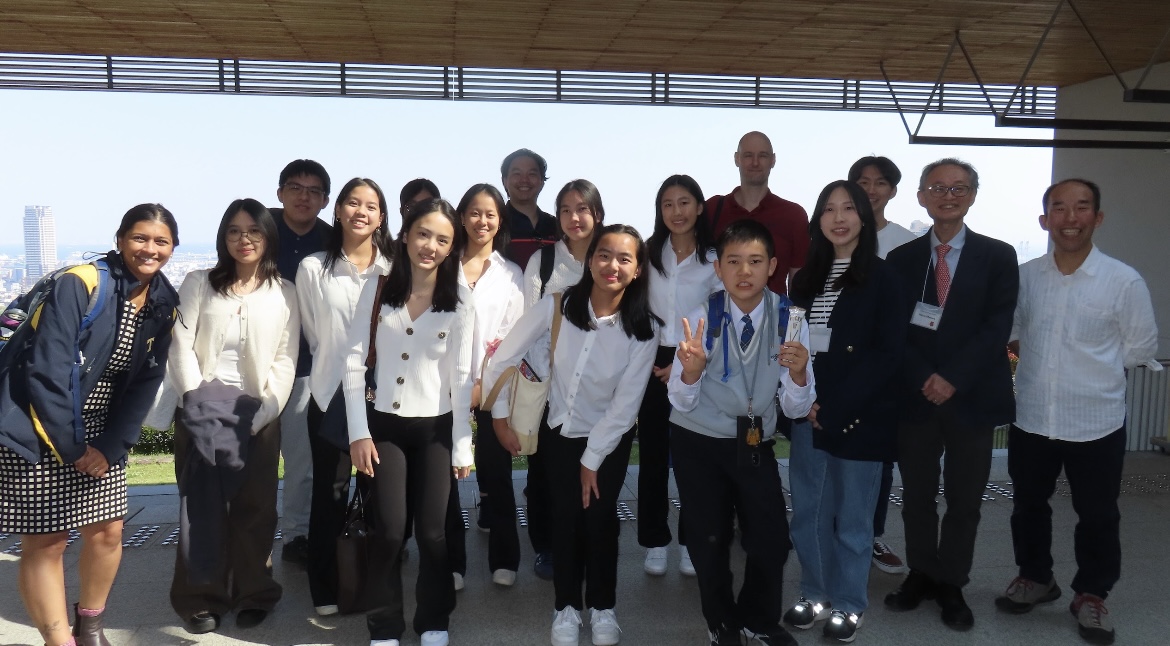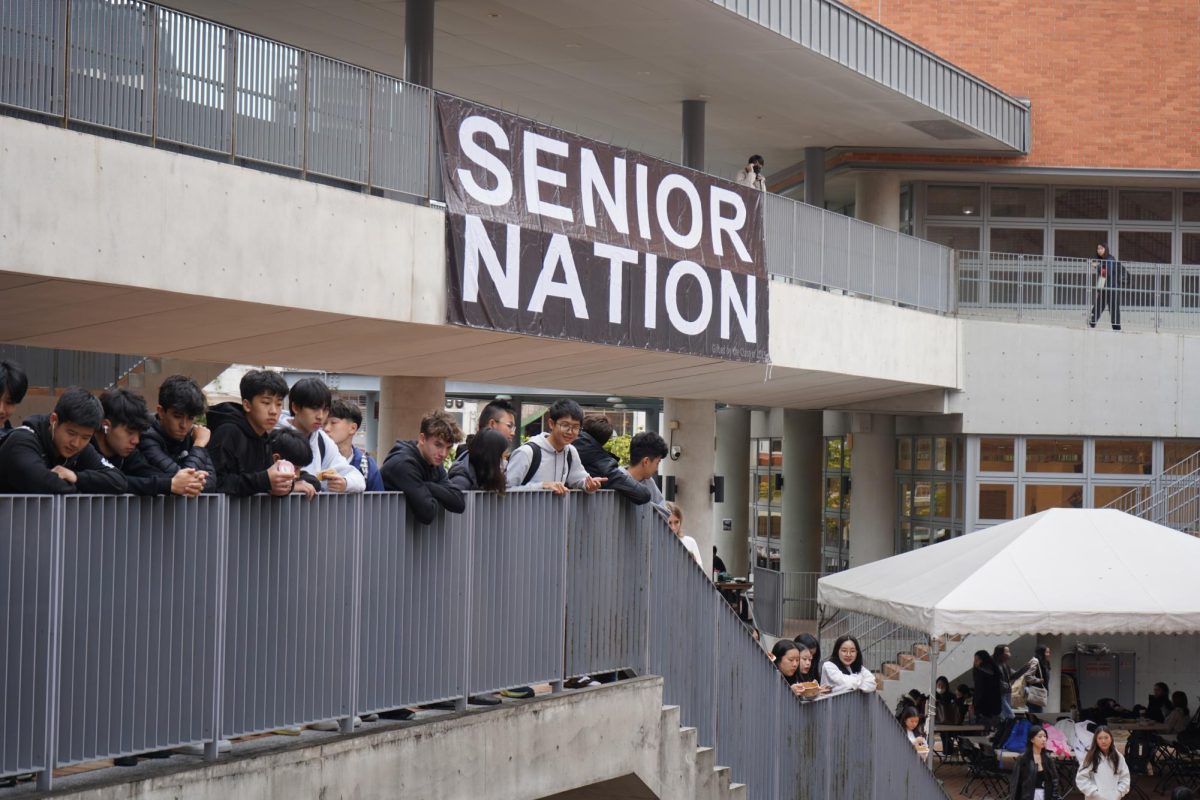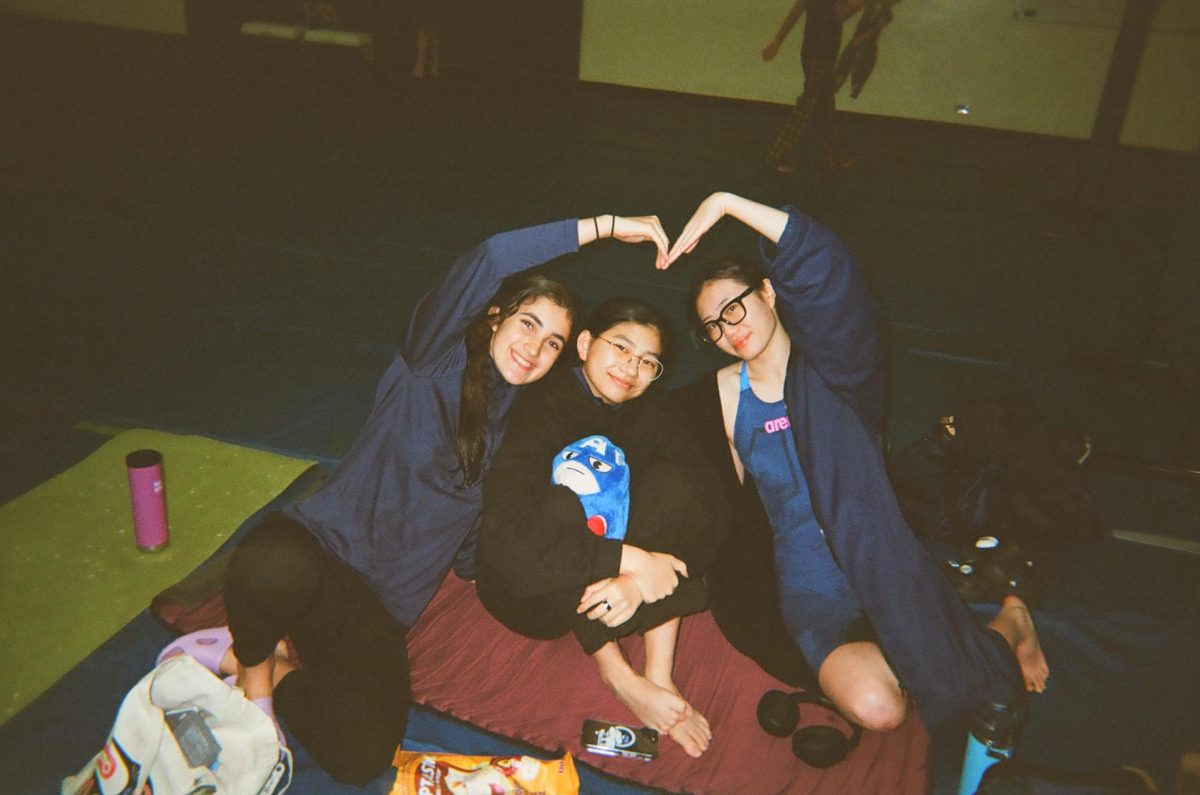“It’s the ubiquity of technology in everyday life that almost mandates strong scientific knowledge,” Dr. Aaron M. Kyle said Thursday afternoon at the Solomon Wong Tech Cube. This year’s Joanna Nichols Visiting Scholar, Dr. Kyle arrived at Taipei American School earlier this month to teach classes and labs on the diversifying application of engineering design. Dr. Kyle, Senior Lecturer in Biomedical Engineering Design at Columbia University, will remain on campus until the end of January.
“It’ll be nice to try something different like this,” he said. “I was able to use the first week to get acclimated to the space, to get figure out where each equipment I needed was.” Dr. Kyle began teaching in his second week here.
He earned a bachelor’s degree in electrical engineering at Kettering University in 2002, and a PhD in biomedical engineering from Purdue University in 2007. He is on the advisory boards of two prominent medical device companies, Luso Labs and Neopenda.
In 2017, Dr. Kyle received the Presidential Award for Outstanding Teaching, one of Columbia’s most prestigious awards. He is also a co-founder and director of Hk Maker Lab, a two-month,Columbia-based high school summer program.

The process of defining problems begins with identifying a specific purpose, which in his case serves for global health technology and bioinstrumentation. You would then devise a specific method from a pool of solutions that help to fulfill that purpose.
Dr. Kyle said he used this process once he became a senior lecturer after finishing graduate school. “I developed a passion for the entire cycle, from having to figure out what kind of courses might be needed, to creating these courses, how to test them out, refining them, to be in the classroom and teaching things, to engaging in an assessment, to see what works and what doesn’t work, using that to improve things to move forward,” he said.
In his second week teaching robotics and engineering classes at the Tech Cube, Dr. Kyle said he hopes to convey the idea that engineering concepts will someday be combined with other fields, for example, robotics. He and TAS students have built monitors that detect physiological functions, such as respiration and body temperature. “I try to combine specific electrical engineering practices into the devices,” he said.
Technology, Dr. Kyle said, has become so prevalent in our lives that we should begin to question its purpose. “It’s important for you to know when something goes wrong with one of your devices,” he said. He hopes that we could appertain this Socratic method of questioning with “other avenues in life,” such as architecture and the arts.
Dr. Kyle said he came from a generation who did not witness the growth of digital technology as youth. “I was more reliant on going to a library, looking through books, computers [with] floppy drives,” he said. But in contrast, we rely so much on computers, smart devices and wireless networks that Dr. Kyle said they are deeply “ingrained” in our lives.
“It’s not just having these tools, it’s having a curiosity about them that could propel us from now to the next level.”
“This generation in particular must have an appreciation for STEAM, quite frankly,” he said. (STEAM is an applied form of education that stands for science, technology, engineering, the arts and mathematics.) We should at least fathom scientific concepts that support modern technology, whereas thinking about how they could be predisposed as tools, if not for reality, but “that could be well integrated into our society,” Dr. Kyle said.
“It’s not just having these tools, it’s having a curiosity about them that could propel us from now to the next level,” he said.
On Jan. 27 during flex period, Dr. Kyle will deliver the third and last of his weekly seminars at the Lecture Hall. His last two seminars have covered the historical development and medical applications of bioelectricity.




![[PHOTO COURTESY OF PIXABAY]](https://blueandgoldonline.org/wp-content/uploads/2025/03/white-18227_1280-1200x803.jpg)

![[PHOTO COURTESY OF PIXABAY]](https://blueandgoldonline.org/wp-content/uploads/2025/03/fire-6706674_1280-1200x800.jpg)
